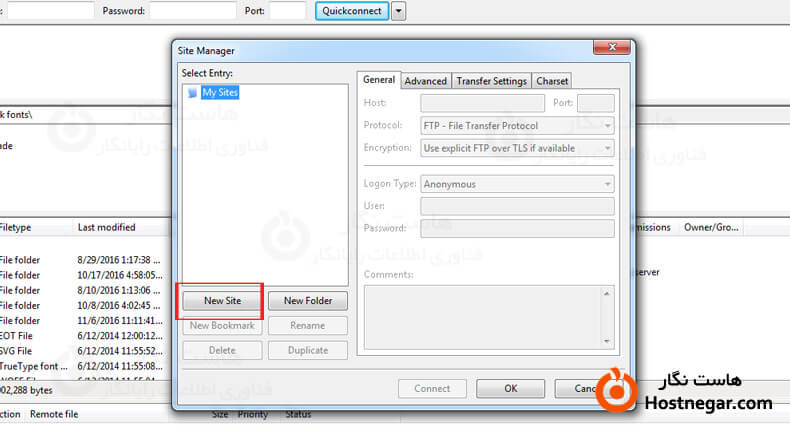
- Filezilla failed to retrieve directory listing 3.16.1 download#
- Filezilla failed to retrieve directory listing 3.16.1 free#
- Filezilla failed to retrieve directory listing 3.16.1 windows#
I also experience very slow transfer speed in winscp as opposed to filezilla and I decided to test things in winscp 5.8.2 beta. So what does it all mean? Well like I said I'm not an expert :) I would be interested to see if it's possible to fix the TCP window size used by WinSCP to something larger, and I guess maybe looking into the mechanisms of how the two programs process ACKs. Again WinSCP is quite inconsistent with the ACKs sent per cycle, ranging from 1 every 2-3 packets received up to 7-8. The 16448 byte transmit window divided by the 5MBps throughput confirms an average cycle time of 0.003s. Time taken for each cycle varies significantly from 0.0015s up to 0.06s. In contrast, WinSCP only takes 11 packets of 1460 bytes before a final 388 byte packet, totaling 16448. Note that there are still plenty of ACKs being sent back throughout the cycle - about 1 ACK reply per every 2 packets received. This repeated cycle takes consistently 0.017s, giving about 7.7MBps, or 61Mbps.
Filezilla failed to retrieve directory listing 3.16.1 download#
The FileZilla download takes 90 packets of 1460 bytes, and 1 packet of 184 bytes for a total of 131584 bytes (I don't know why it doesn't fill out the entire 4194304 window but as I understand it doesn't necessarily HAVE to). It's a bit hard to show plots of SEQ/ACK response time, but in Wireshark there is a SEQ/ACK analysis field that gives "RTT to ACK the segment" and FileZilla was consistently around 0.00002s whereas WinSCP seemed to be a lot more inconsistent, ranging from 0.00004s up to 0.00007sįurthermore, looking more closely at the way the packets are coming in, both downloads follow the pattern of receiving "full" packets of 1460 bytes, until there is one final smaller packet (assuming this is the end of the TCP window), before repeating. I also tried alternating between AES and Blowfish encryption in the WinSCP options but this didn't make any difference (FileZilla uses AES by default).

I didn't notice any significant CPU load during either download. I'm unsure why it doesn't continue to increase. The main thing that stands out to me is the TCP window size, and time to send ACKs (keep in mind I have some networking knowledge but am in no way an expert!).Īccording to Wireshark's calculation Filezilla uses a fixed TCP window of 4194304 bytes from the very beginning, where WinSCP appears to use the more "standard" ramp up technique and hovers around 1700000 bytes once the download gets going. I've run some Wireshark traces comparing a WinSCP download and FileZilla download. (from the same SFTP source, same internet connection obv). Why is the speed less than half of what I get in FileZilla? Why is WinSCP only downloading one file at a time (in both client and script)? What am i missing, what am i doing wrong?

Filezilla failed to retrieve directory listing 3.16.1 windows#
I thought this might be in scripting/shell mode only, but the WinSCP windows client has the same (slow) performance. Yes, speed depends on internet connection, but I'm comparing both on the same connection of course :)

In WinSCP, only one file at at time is downloaded, and at a slower speed. In the default settings (I never played with any settings), FileZilla downloads two files at the same time! and it's showing a much faster speed. Now, I can't script in that, but it's FAST. It works very well so far, BUT I only noticed now (now that I download more files more frequently for a task in my job): it's very slow
Filezilla failed to retrieve directory listing 3.16.1 free#
I came across WinSCP when I searched for a scriptable free SFTP download client. I'm comparing the download speed of WinSCP (both script and client) vs FileZilla.


 0 kommentar(er)
0 kommentar(er)
